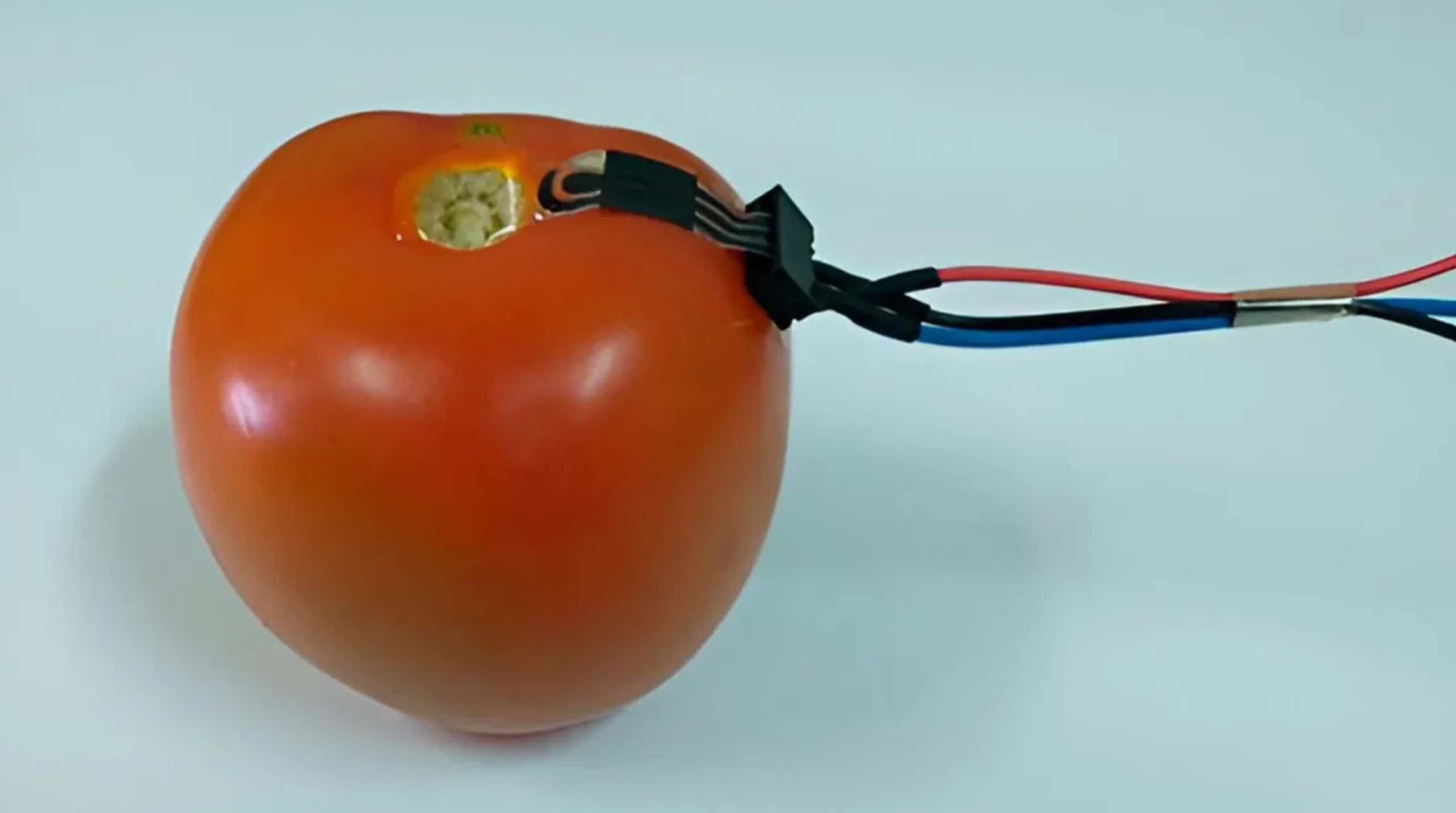Envision a biodegradable sensor capable of swiftly indicating the safety of your fruits and vegetables by detecting harmful pesticide residues. This innovative technology transforms the idea into a tangible possibility rather than a mere science fiction concept.
The Breakthrough ‘Plant-Wearable’ Sensor”
Researchers from the University of São Paulo (USP) and the Federal University of Viçosa (UFV) in Brazil have developed a sustainable sensor, known as “plant-wearable,” which can be directly applied to fruits or vegetables to detect the presence of pesticides. Crafted from cellulose acetate, a material derived from wood pulp, the sensor demonstrates promising potential.
Pesticides, commonly used to enhance crop yield, are typically sprayed on plants, with only half effectively reaching their target. The remaining pesticides enter the soil, water, and food, posing health risks through skin contact, inhalation, or ingestion.
Sustainable Solutions for Pesticide Monitoring
Current pesticide level monitoring relies on chromatographic techniques, presenting challenges such as the need for sample preparation, expensive equipment, skilled personnel, extended analysis time, and lack of mobility. Additionally, the environmental impact of toxic waste from organic solvents is a significant concern.
In laboratory tests, researchers applied the sensor to lettuce and tomatoes sprayed with carbendazim and paraquat. Despite paraquat being banned in the EU, it is still used in Brazil. The sensor detected pesticides similarly to the commonly used polyethylene terephthalate material. Washing the vegetables for two hours removed only 40% of carbendazim and 60% of paraquat from lettuce, and 64% from tomatoes.
A Portable and Sustainable Approach to Food Safety
While this research is still in its early stages, the potential impact is significant. It offers a portable, sustainable, and user-friendly solution for safeguarding food quality and promoting responsible pesticide use. As the technology advances, we may see these tiny sensors become commonplace, empowering individuals and ensuring a safer food system for all.







